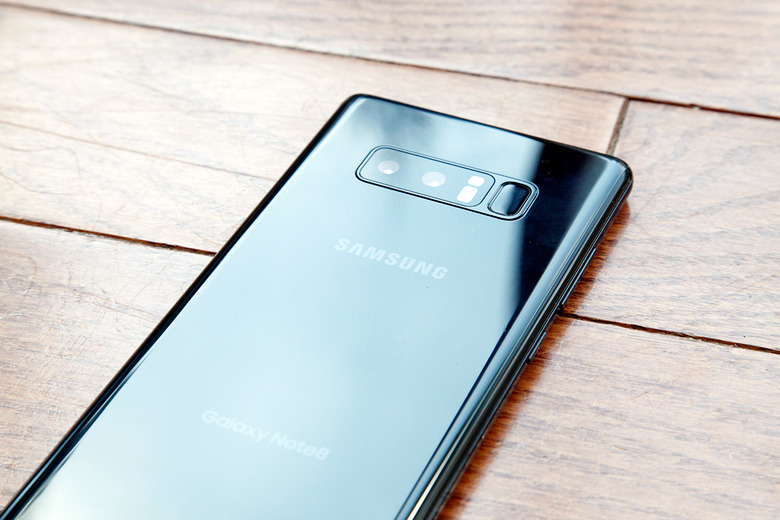New Report Says Galaxy Note 9 Will Have A Fingerprint Sensor Under Its Display
It was just a few days ago that we were told Samsung had canceled plans to place the Galaxy Note 9's fingerprint sensor under the display. The news came from Ming-Chi Kuo, an analyst with a great track record with predictions in the mobile market, though his main focus has always been on Apple and its iPhone.
A new report now says that Samsung actually is going forward with the plans to integrate a fingerprint sensor into the Note 9's display. And it looks like the decision might be one of necessity.
"Samsung Display has prepared three or four solutions for Samsung Electronics to embed the fingerprint sensor inside of the main display, and both are seriously considering one of the solutions," a source told The Korea Herald. "The delay in deciding on the final concept for the Note 9 is due to the work in adopting the in-display fingerprint sensor. A final decision on adoption of the technology will be made by this month."
The report notes that the design for a flagship Samsung phone is finalized about five months before its launch. The Galaxy Note 9 is expected to hit stores in late August, so the handset's design should theoretically now be a done deal.
A different source said that Samsung Display is working to improve fingerprint scanning technology for flexible AMOLED screens. "There is enough time for the display company to improve the technology to meet the handset maker's expectations before the launch of the Note 9 in late August," he said.
This design choice will help Samsung differentiate its design from Chinese competitors, including Huawei. But the real reason why Samsung may go forward with in-display fingerprint sensor might be different.
Placing the sensor on the back of the handset prevents Samsung from increasing the battery size, especially given Samsung's latest design choices. Samsung's Galaxy S9 features a fingerprint sensor under the camera module rather than next to it, as was the case with the Galaxy S8 and Note 8 phones.
The Herald notes that in-display fingerprint sensors come with higher costs than Apple's Face ID cameras due to their complexity. Low yields are also an expected problem for any company looking to this particular type of fingerprint-sensing technology. But it should not affect Samsung that much, an analyst told The Herald, as Samsung only sells about 10 million Note phones each year.
